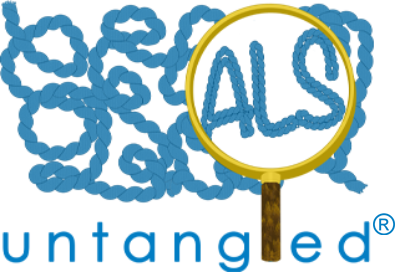Basis
Basis has mechanisms of action that could theoretically be useful in treating ALS. It appeared reasonably safe in a small, short duration study of healthy volunteers and it is fairly inexpensive. However, we found no data in preclinical ALS models, no case reports, and no trials in PALS. Based on this lack of data, ALSUntangled […]
Eric is Winning
In conclusion, we find few plausible mechanisms by which components of the EIW regimen might impact ALS progression, and no pre-clinical or clinical evidence to support using this complicated, expensive and potentially risky treatment. Mr. Edney appears to have had very slow ALS progression even before he started his protocol, and there is no convincing […]
Ayahuasca
Ayahuasca has interesting mechanisms that could potentially be useful in treating human ALS. We found one person who appears to have experienced an ALS reversal following exposure to a single dose of ayahuasca and several other AOTs. We do not believe that a single dose of ayahuasca could trigger a mechanism that would reverse ALS. […]
Acuscope
Acuscope appears reasonably safe, but it is not clear that it has a mechanism of action that would be useful to PALS. One person with PLS experienced slightly slower ALSFRS-R measurements while using Acuscope than she did before starting it, but a PALS had slightly faster ALSFRS-R progression during treatment. Since the natural history of […]
Inosine
Inosine is a low-cost supplement that increases the levels of urate, a naturally occurring antioxidant. With appropriate blood and urine monitoring, it appears reasonably safe. Epidemiologic data suggest that high urate levels may be associated with improved survival in ALS, which prompted preclinical studies and clinical trials of inosine. These are still ongoing and will […]
Accilion
In our opinion, Accilion does not have a mechanism that is plausible for the treatment of ALS. There is one patient with a confirmed diagnosis of slowly progressive ALS who had modest objective improvements in motor function while using Accilion. However, improvements such as these have been described before, even in patients taking a placebo […]
Gluten-Free Diet
Theoretically, gluten-induced autoimmunity could trigger ALS. However, the data supporting this link are weak, consisting of two association studies and a single case-report. Further studies are needed to confirm the relationship between GRDs and ALS, and the utility of the GFD in patients with both conditions. In spite of the fact that GFD is reasonably […]
Protandim
Protandim appears reasonably safe and inexpensive, has a promising mechanism by which it could help ALS, and there is a patient with a validated ALS diagnosis whose ALSFRS-R score improved on it. There are significant problems with the data described, including small study sample sizes, failure to demonstrate that Protandim increases Nrf2 in humans, failure […]
